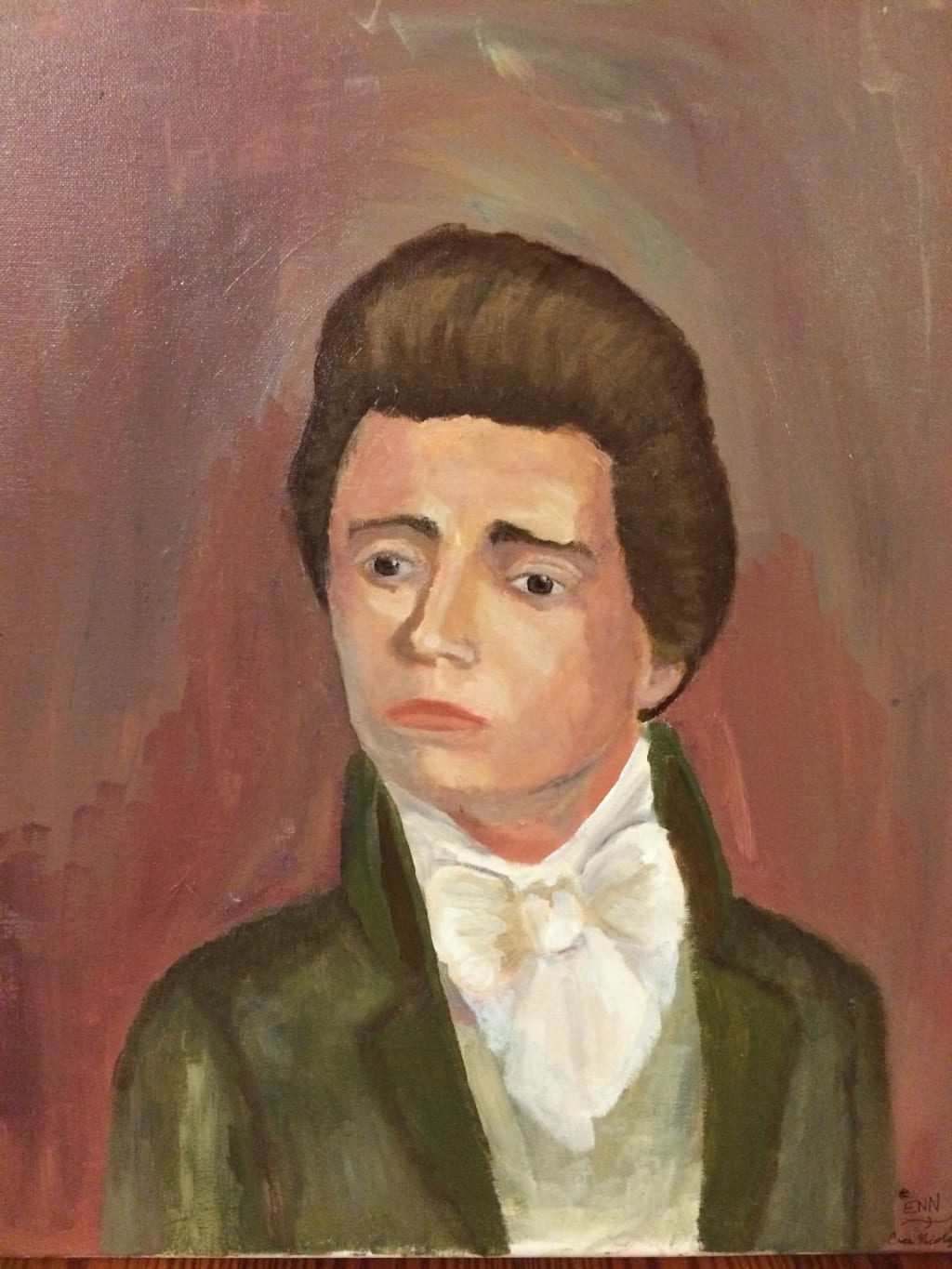The White Indian
A little known fact of the 1700s was that American boys often interacted with and befriended Indians. They even emulated them in their dress, stealth, and hunting techniques, and when they came of age, used their fighting techniques to defeat the British in the Revolutionary War.

April of 1775
In the darkness of the forest that enveloped the winding, treacherous Headstone Hill, over which many a neighbor had stalked in silence toward the sprawling 100 year old plantation, the old Greaves Estate, it was whispered that a young Indian war chief lived within those very walls. At Black Hollow, he often lingered, and was seen gliding beyond the little railway fence that barred his way, reappearing far on the other side of it without a sound. It seemed the very wind carried him in silence, leaving not a trace of his presence save for the faint half-print of a moccasin. A domesticated rascal, he had been tamed and taught to act the part of a gentlemen within the house, but the people of the wood knew better. He was nothing short of the best rifleman in all of Virginia, and certainly a mighty boast for those who lived in Woodstock, Virginia. In short, the boy had grown to be a renowned figure of the forest.
Now, perched in the tallest of the native pines of the dense and daring forest, the gleaming steel of his long rifle catching a ray of sunlight, as he clasped steadily with his left hand while his right clutched impatiently the trigger, the small tarry creature that resembled an animal hardly moved from his poised and watchful attitude. His glittering brown eyes were latched resolutely on some game that no doubt lay far below him. The blackness of his skin was afforded by the dark warpaint of his friends, of the Indians Delaware tribe. He had so thoroughly covered himself with it that save for the whites of his eyes, his face was unrecognizable as human, but rather looked like a charred fire. The tree in which he had positioned himself looked the same, dark, as it had recently rained and the usually dark wood was even darker still. His buckskin leggings and tasseled brown hunting shirt was so ragged and dirty with the smears of his paint here and there upon it, and the dirt and mud he had undoubtedly crawled through when on the woods’ floor, that he blended in almost seamlessly with the tree. Marty Bernard, for that was the boy’s name, took careful aim. His target was a young buck, whose rack was as large as to boast to all the neighboring boys in the settlement about for months after he should shoot the creature, and whose meat should feed his family a good six months hence. Marty’s heart swelled with pride, as well as the nervous trepidation that he might fail in his endeavor. Adjusting himself ever so quietly on his perch, he shifted his weight more to his right leg, supporting his left moccasin more firmly against the opposite branch he had been bracing himself with. He leaned into a large one that created a sort of fence post design, and propped his foot against another branch that came up near it, rising in his forefront. He prided himself in his keen knowledge of what hidden treasures the woods held, that he was the only boy who knew about this perfect hunting tree.
The buck, cast a cautious glance of suspicion about himself, pausing as he was about to lower his head to the ground to lick the salt from one of the rocks that lay there. Having slowly approached the tree, he now hesitated, holding his head a bit higher, wide black eyes peering searchingly up and around.
Marty did not move. He hardly breathed, but kept his weapon steadily aimed upon the unsuspecting buck. The barrel was directed at the heart. Calculating the precision of his aim, the boy satisfied himself that he had calculated correctly, still holding his breath, as he anticipated his success. Then he fired.
The impact made the deer recoil, throwing up its head in such a taut position that Marty instantly knew his shot had rang true to its mark, and without another moment’s delay, carefully holding his rifle out and up away from himself, he scurried nimbly down the tree, scraping his shirt most of the way down against the rude bark. In his eagerness, he hardly took thought for his clothes, but came down at double the speed he had sprung up the fortress, and dropped directly before the fallen deer.
Several minutes later, the boy was dragging the creature across the forest floor by its four legs, gathered in his hands. The gun slung by its strap over his shoulder, and he seeming preoccupied with getting his deer back to his home on the plantation, the boy appeared to take no regard for his surroundings any longer.
However, had anyone observed the boy, he should have noted that Marty was forever glancing about himself, his ears keen to every sound that could indicate the approach of animal or man, distinguishing the sound of the wind rustling through the leaves from the sound of them crackling beneath his own feet, and the light step of a rabbit that skirted beside him at a safe distance for a time. Nor had the deer been his first to kill or his first to have brought down from such a far height as the tallest tree in the wood. Marty was as skilled a hunter as an Indian, and, as has been noted, was equal to their clever ways of blending in with nature.
From time to time, as the boy dragged his prized game along, he paused momentarily to wipe the sweat from his brow. As he did so, gradually his war paint smeared into a hideous impish appearance, but after going on a mile in this fashion, enough of the paint had been transferred from his face to his shirt to make his countenance visible. He was fifteen years old, but by his appearance, one could assume him to be thirteen at the oldest, for he had a childish face that caused many to be mistaken in guessing his age. His hair was of a rich auburn color, tied loosely, but had become so disheveled during his late forest hunt and the mix of his warpaint in it that it was hard to tell the exact color or whether it was tied or not. His face was tan from many days spent in the outdoors, and his frame though small and a bit thin, sturdy. He treaded so lightly on his moccasins even while dragging the deer that his steps could scarcely be heard, and all the while those eyes played about the forest with an interest that spoke of a grave intelligence beyond his years.
At length, the boy lifted his eyes as a slight smile spread across his face, not enough to betray excitement, but it was a constricted smile as though the boy wished to disguise his feelings. He glanced down at his left hand, at the same time, for he had lifted it to shield his eyes from the sun and get a better view of the emerging plantation, but in doing so he noted it was covered in blood. He frowned a moment, scrutinizing it, not having remembered receiving injury. With an indifferent shrug, though his face betrayed the sting he was beginning to feel in the limb by a slight pinching of his lips together, he wiped it silently on his shirt, and with renewed vigor dragged the deer down the hill he had just ascended.
About the Creator
Erica Nicolay
I have written stories since I was thirteen and enjoy releasing short stories online. I have published one book about the Hitler Youth Program titled True to the End, which you can buy on Amazon.





Comments
There are no comments for this story
Be the first to respond and start the conversation.